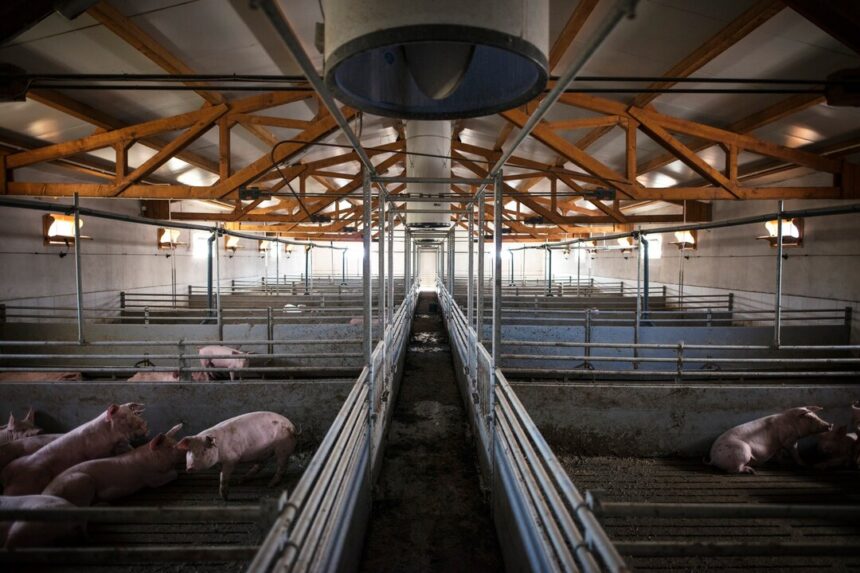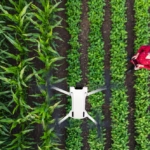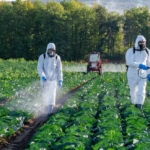Embarking on pig breeding and farming in South Africa requires careful planning, preparation, and investment in the right equipment to ensure the well-being of your pigs and the success of your operation. Whether you’re starting a small-scale operation or a larger commercial venture, acquiring the necessary pig equipment is crucial for efficient management and productivity. Here’s a comprehensive list of 20 essential pig equipment items you should acquire before starting pig breeding and farming in South Africa:
1. Pig Housing: Construct sturdy and well-ventilated pig housing facilities, such as pens or shelters, to provide protection from adverse weather conditions and ensure the comfort of your pigs.
2. Watering Systems: Install reliable watering systems, such as automatic drinkers or nipple drinkers, to provide a constant supply of clean and fresh water to your pigs.
3. Feeding Troughs: Provide feeding troughs or hoppers to facilitate the efficient feeding of your pigs, ensuring they have access to balanced and nutritious diets.
4. Feed Storage Containers: Store pig feed in secure and rodent-proof containers to prevent spoilage and contamination, ensuring feed quality and safety.
5. Heat Lamps or Heat Mats: Use heat lamps or heat mats to provide supplemental heat to piglets or during cold weather, helping to maintain optimal body temperature and reduce stress.
6. Farrowing Crates: Utilize farrowing crates to provide a safe and controlled environment for sows to farrow (give birth) and nurse their piglets, minimizing the risk of crushing and improving piglet survival rates.
7. Pig Scales: Invest in pig scales to accurately monitor the growth and weight gain of your pigs, facilitating proper management and decision-making regarding feeding and healthcare.
8. Pig Identification Tags: Tag or ear-mark your pigs with identification tags or tattoos for easy identification and tracking of individual animals, particularly useful for record-keeping and management purposes.
9. Handling Equipment: Acquire handling equipment such as sorting boards, gates, and panels to facilitate the safe and efficient movement of pigs within your farm premises.
10. Hoof Trimming Tools: Keep hoof trimming tools on hand to trim the hooves of your pigs regularly, promoting hoof health and preventing lameness.
11. Vaccination and Medication Equipment: Equip your farm with vaccination guns, syringes, needles, and other necessary equipment for administering vaccines and medications to your pigs as part of disease prevention and treatment protocols.
12. Heat Detection Equipment: Use heat detection equipment such as boar detectors or teaser sows to monitor the estrus cycle of your sows and optimize breeding management.
13. Fencing Materials: Secure your pig farm with sturdy fencing materials such as wire mesh or electric fencing to prevent escapes and protect your pigs from predators.
14. Waste Management Systems: Implement effective waste management systems, such as slatted floors or manure pits, to facilitate the proper disposal and management of pig waste, minimizing environmental impact and odors.
15. Pig Handling Facilities: Construct loading ramps or chutes to facilitate the safe loading and unloading of pigs during transportation or movement within the farm.
16. Environmental Enrichment: Provide environmental enrichment materials such as straw, toys, or rooting materials to promote natural behaviors and reduce boredom and stress among your pigs.
17. Ventilation Systems: Install ventilation systems, such as fans or air vents, in pig housing facilities to maintain optimal air quality and temperature, reducing the risk of respiratory diseases and heat stress.
18. Emergency Equipment: Keep emergency equipment on hand, including first aid kits, fire extinguishers, and emergency contact information, to ensure prompt response to emergencies and accidents.
19. Record-Keeping Software: Utilize record-keeping software or systems to track important data such as breeding records, health history, and production performance, enabling informed decision-making and efficient management.
20. Biosecurity Measures: Implement biosecurity measures such as foot baths, vehicle disinfection stations, and visitor protocols to prevent the introduction and spread of diseases within your pig farm, safeguarding the health of your pigs and the integrity of your operation.
Acquiring the right pig equipment is essential for establishing and managing a successful pig breeding and farming operation in South Africa. By investing in quality equipment that meets the specific needs of your farm and pigs, you can enhance productivity, ensure animal welfare, and achieve long-term sustainability. Whether you’re starting small or scaling up your operation, careful planning and investment in essential pig equipment are key to achieving success in the pig farming industry.








